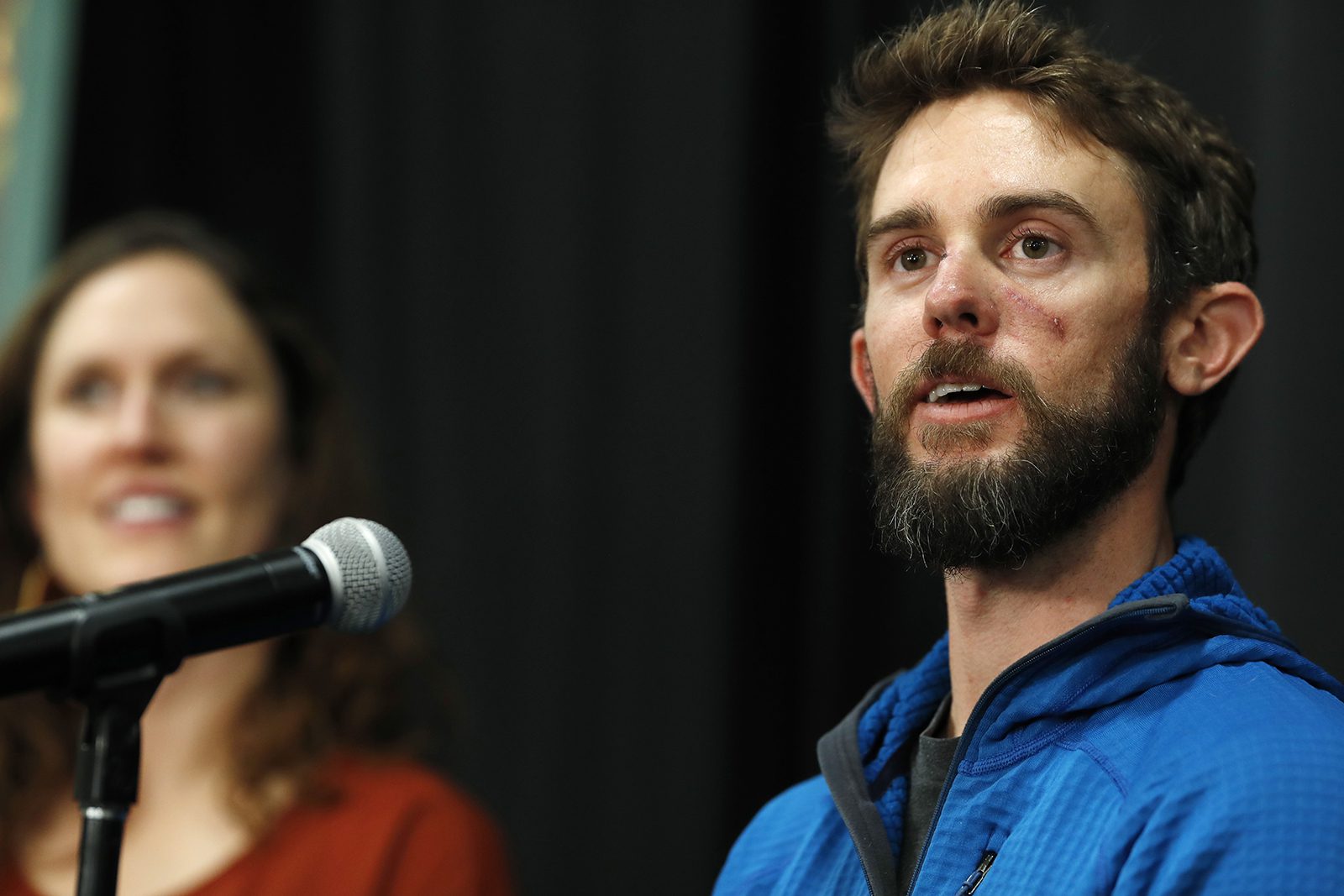People and animals are different. There is a news flash for you this morning as you have your coffee and Wheaties.
If you keep up with such things as I do, you have been seeing more reports in the news and on the internet labyrinth about animals attacking (and sometimes eating) human beings. I really don’t think this should come as a big surprise to most of us, but it is.
(READ MORE: Our thinking on predators has changed dramatically)
As we have discussed before in these pages, predators do what predators do. They kill and eat other animals. When the prey sometimes turns out to be human, the predator doesn’t think it is something unusual.
The most recent talk in the news cycle about this subject comes from Colorado and deals with mountain lions, also known as cougars among other names.
At election time in November, the ballot for voters in that state will include a proposition (now known as Colorado Initiative 91) to ban the hunting of mountain lions and bobcats. Much of the push (and funding) for Initiative 91 has not come from the public in Colorado, though, but from (of course) groups based in Washington, D.C., such as Animal Wellness Action and its affiliate organization, the Center for a Humane Economy. These groups and several like them routinely work on projects like this and are, for the most part, against hunting.
Let’s interrupt here and consider a few basic truths (to me) in the realm of whether or not to protect predators in the modern world. One is that there is a basic concept that when animals are not hunted, they lose their fear of humans.
Your humble outdoors scribe has been trying to keep you informed in recent years of the grizzly bear situation in the American West. Over time, grizzlies (North American brown bears) have increased in population and expanded their range in the Greater Yellowstone Ecosystem area and beyond. The result is they’re now being encountered in areas where they have not been seen in recent history, and when grizzlies and people mix, it does not always go well for the people. (I know, it doesn’t always go well for the bears either.) Grizzlies have not been hunted in this area since back in the 1970s and have no reason to fear man.
Some time back, I reported to you that the federal government, in the form of the United States Fish and Wildlife Service, delisted the grizzly bear from the endangered species list, which allowed the affected states in the Greater Yellowstone Ecosystem (Idaho, Montana, Wyoming) to take control of management for the bears and institute a very limited hunting season for grizzlies. Soon after that, though, various groups that did not want the bears hunted filed lawsuits, found a sympathetic judge, and eventually it was ruled that the grizzly had to go back on the endangered species list, which halted all hunting. I believe the various states are still in litigation trying to reverse this so they may reinstate a hunting season for the bears.
The situation on the grizzlies will not change — and attacks on fishermen, hikers, hunters (of other game) and other people will continue to increase — until something changes, like the institution of a hunting season.
(READ MORE: Let’s talk about the bear in the room)
 AP photo by David Zalubowski / Travis Kauffman, who killed a mountain lion in February 2019 after being attacked while running a trail near Fort Collins, Colo., responds to questions during a news conference in the city a week after the incident. Kaufman’s girlfriend, Annie Bierbower, looks on.
AP photo by David Zalubowski / Travis Kauffman, who killed a mountain lion in February 2019 after being attacked while running a trail near Fort Collins, Colo., responds to questions during a news conference in the city a week after the incident. Kaufman’s girlfriend, Annie Bierbower, looks on.
Now back to the cougar question.
One source, Colorado Outdoors, reported there have been 25 mountain lion attacks in that state since 1990 and that the most recent fatal attack involved a 10-year-old boy in Rocky Mountain National Park. California seems to have a lot of mountain lions, as the Golden State has not had a hunting season on these cats since a 1990 statewide ban, with various moratoriums on hunting them dating back to the 1970s. California reports there have been 50 confirmed attacks by mountain lions since 1890, and “only” six of these were fatal.
I note the point about “only” to say this: There is always a tendency in the reporting from various government and news agencies to minimize the attacks by bears, cougars, and other predators. These are always referred to as “rare,” no matter how many may occur in a given year.
The amount of bear attacks in the West has definitely increased in the past few years. Retired wildlife officials in Colorado are warning that banning the hunting of mountain lions will increase the number of attacks on humans. Amazingly, wildlife officials currently working for Colorado Parks and Wildlife are not permitted to comment on topics such as the upcoming vote for Initiative 91 dealing with cougars. (There is some good government for you.)
There is another factor here in dealing with wild animals in today’s world. We increasingly see the rise of anthropomorphism, that is the tendency to attribute human traits, emotions and intentions to animals. “Guns & Cornbread” has addressed this subject before, also known as “the trouble with Bambi,” including the problems associated with trying to deal with and manage wild animals when people are often prone to giving them human characteristics. The creators of the Disney classic animated movie “Bambi” purposely gave the title character and the other cartoon animals human characteristics so they would have more appeal to the audience, and it worked.
As I have told you before, folks, animals are not like people. They just aren’t.
Back in the day, the general public recognized this, and there was no problem with doing things such as shooting predators when you needed to. Now you hear more about how “the bears (or the cougars) were here first” or other trendy messages that reveal many today put more value on the life of an animal than they do a human being.
As I am sure you know, I am on the side that deals with problem predators with hot lead.
Where do you stand?
“Guns & Cornbread” is written by Larry Case, who lives in Fayette County, W.Va. You can write to him at [email protected].
Source link : http://www.bing.com/news/apiclick.aspx?ref=FexRss&aid=&tid=66b8b98681d84ad1aafa1f8d20e19541&url=https%3A%2F%2Fwww.timesfreepress.com%2Fnews%2F2024%2Faug%2F11%2Fcase-yellowstone-bears-colorado-cougars-and-a-hot%2F&c=13064465142163383888&mkt=en-us
Author :
Publish date : 2024-08-11 01:01:00
Copyright for syndicated content belongs to the linked Source.





